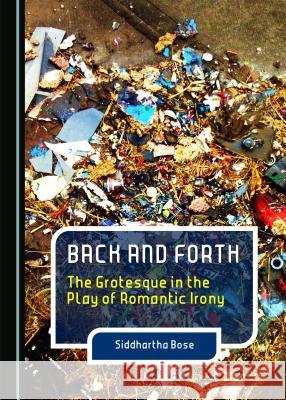Back and Forth: The Grotesque in the Play of Romantic Irony » książka
Back and Forth: The Grotesque in the Play of Romantic Irony
ISBN-13: 9781443870542 / Angielski / Twarda / 2015 / 240 str.
This seminal book examines the dramatic implications of the grotesque in Romantic aesthetics. There are currently no book-length studies exploring the drama of the Romantic grotesque, a category that accentuates multiplicity and hybridity. The post-Kantian philosophy backing Friedrich Schlegel's Romantic irony provides the most decisive rationalisation of this plurality through theatrical play, and forms the theoretical framework for this study. Poetry and philosophy are merged in Schlegel's attempt to create Romantic modernity out of this self-conscious blurring of inherited perspectives and genres--a mixing and transgressing of past demarcations that simultaneously create the condition of the Romantic grotesque. The other writers examined in this book include A. W. Schlegel, Stendhal, Victor Hugo, and Baudelaire. The primary question explored here is: how is the grotesque used to re-evaluate notions of aesthetic beauty? An answer emerges from a study of those thinkers in Schlegel's tradition who evolve a modern, ironic regard for conventional literary proprieties. Furthermore, how does the grotesque rewrite ideas of poetic subjectivity and expression? Here, Back and Forth foregrounds the enormous importance of Shakespeare as the literary example supporting these new theories. Shakespearean drama, which crosses aesthetic borders, legitimises the grotesque while reflecting the blood and gore of a post-Revolutionary Europe. Consequently, in reviewing hybrid texts like the Schlegelian fragments, Stendhal's Racine et Shakespeare, Hugo's Preface de Cromwell, and Baudelaire's De L'Essence du Rire, this book uses theories of continental Romanticism to reposition the significance of a vitally radical English aesthetic. Through this, Back and Forth claims that the Romantic revisioning of the Shakespearean grotesque helps create the ideas of post-Revolutionary modernity that are crucial to the larger projects of European Romanticism, and the ideas of modernity emerging from them.











